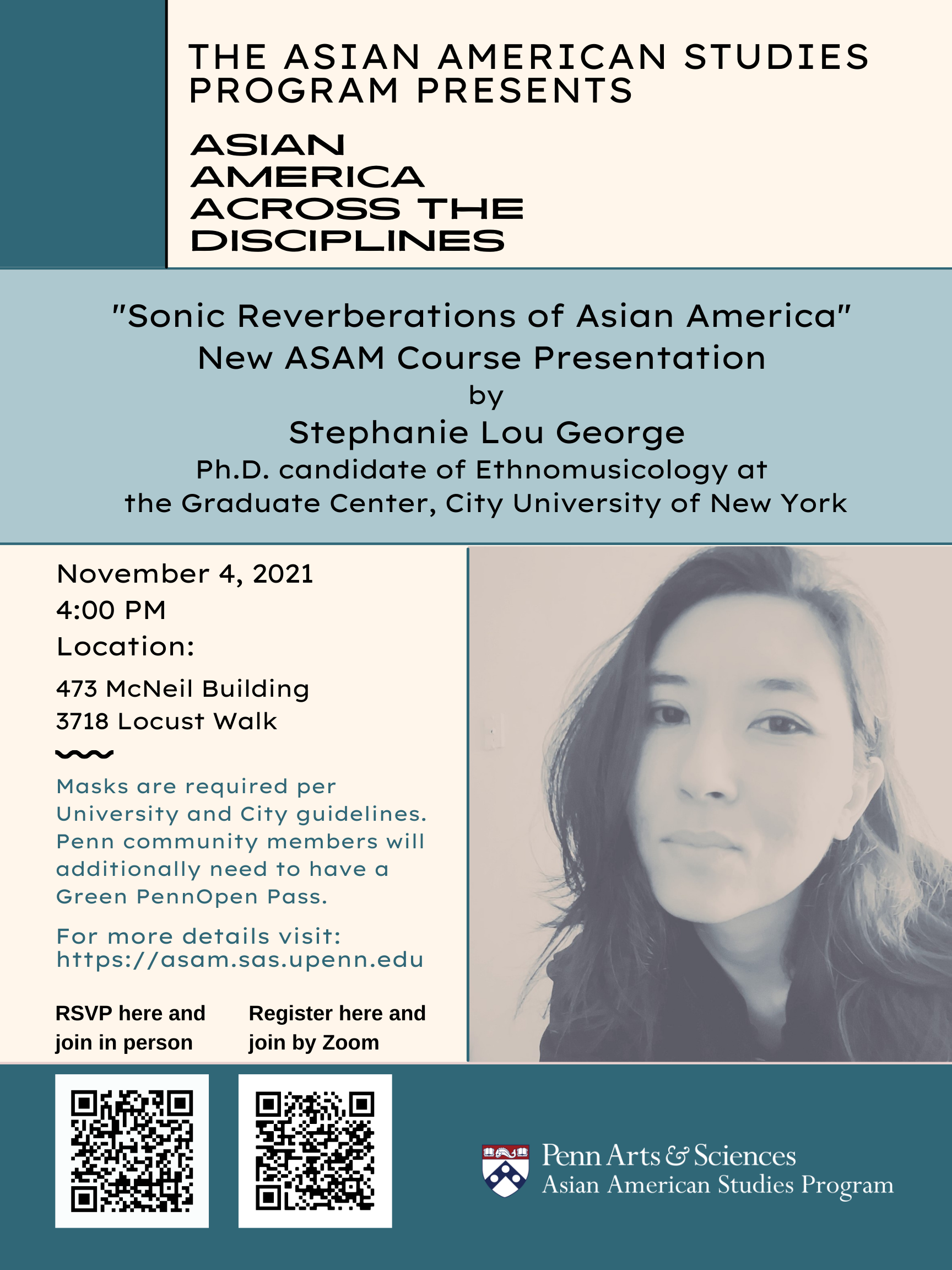Event

Sonic Reverberations of Asian America, ASAM new course presentation by Stephanie George.
Please RSVP in advance here! If you would like to join us by Zoom, please register here!
Stephanie Lou George is a doctoral candidate of ethnomusicology at the Graduate Center, City University of New York. She has conducted multi-sited research in New York City, Guyana, and Trinidad, as well as virtual ethnography, to examine the significance of music and sonic practices such as spirit mediumship in Indo-Caribbean Mariamman/Kali goddess worship, also known as “Madrasi Religion.” George argues that Indo-Caribbean Madrasi sonic practices serve as technologies of capital within transnational circuits in the production and mobilization of knowledge about race, religion, historical difference, and diasporic belonging. More broadly, George specializes in the study of music, sound, race, and alterity of the Anglophone and Francophone Caribbean and of South/Asian America. In 2016-2017, she was a Dissertation Fellow for the Committee for the Study of Religion at the Graduate Center, CUNY. She received her M.M in ethnomusicology at Bowling Green State University where she focused on the globalization of South Asian popular music and a B.A. in anthropology at William and Mary. In addition to her publications, including those in Indo-Caribbean Caribbean Feminist Thought (Palgrave MacMillan 2016) and the New West Indian Guide, she has taught anthropology and ethnomusicology courses at CUNY’s City College, Hunter College, John Jay, and York College.
In the first half of the presentation, Stephanie Lou George will share insights about her training in ethnomusicology and her current research project about the role of music and embodied sonic practices in Guyanese and Indo-Caribbean religions. The second portion of the talk will be about the course Stephanie plans to teach in the spring which will encompass the study of how people embody, listen to, and participate in music cultures and sonic spaces that are broadly defined as part of South Asian and Asian America amid contexts of nationalism, neoliberalism, universal rights movements, migration, and globalization.
Masks are required per University and City guidelines except when outside and socially distanced. Everyone must register on Penn Open Pass and sign in at the event per university regulations.
The capacity of the room is 40 people.
